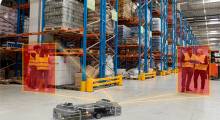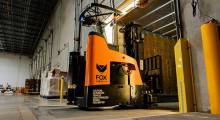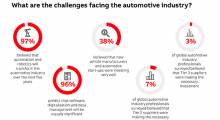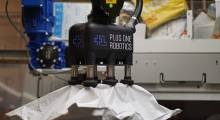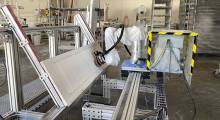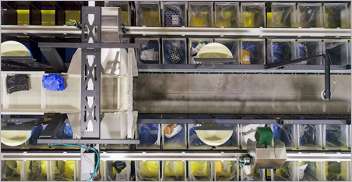PwC Global Truck Study 2018 Highlights
- Trucking logistics costs will fall by 47 percent by 2030, largely through the reduction of labor
- Delivery lead times will fall by 40 percent
- Trucks will be in use on the road for 78 percent of the time, rather than the current industry average in Europe of 29 percent
Reducing Logistics Costs
The digitization and automation of processes and delivery vehicles will reduce logistics costs for standardized transport by 47% by 2030, according to a new report from PwC’s Strategy& consultancy.
The Global Truck Study 2018 has found that around 80% of these savings will be attributable to the reduction of personnel in the transport and logistics industry.
In addition, there will be enormous increases in efficiency: autonomous lorries, for example, will be able to travel 78% of the time from 2030 onwards, as opposed to 29% of the time since 2030.
This will be because there will be no breaks for drivers and idling time will be reduced through the use of algorithms.
“Within just a few years, the commercial vehicle and logistics industries will merge to form an ecosystem that will be managed digitally and efficiently. Robots are already being used in distribution centers and electric vehicles for last-mile logistics,” explains Dr. Gerhard Nowak, Partner at Strategy& Germany.
“The missing piece of the puzzle is currently the automated comparison of freight and available vehicles. In a fully automated supply chain, a product on an Industry 4.0 production line would already be produced with the digital information to book the transport for its own delivery shortly before its completion.”
A consistently digitized supply chain saves administrative overheads, replaces time-consuming inventory, and reduces insurance costs by cutting error rates. In total, savings of up to 41% are possible by 2030 compared to today's supply chains.
The first-mile delivery of products will become more efficient over the next few years, primarily as a result of the automated assignment of freight to the truck, and platform solutions will replace manual administration tasks, which will release savings potential of 45% by 2030.
For last-mile deliveries, data-driven demand analysis, automated deliveries (for example through drones) and reduced administrative overhead could see costs fall by 51%.
“The logistics industry is undergoing massive technological change, changing well-known business models and traditional roles of freight forwarders, truck operators or truck drivers. The change to an autonomous truck is also reducing the importance of equipment features and ride comfort for manufacturers - in the future, it is about offering the better cost balance per kilometer.”
“To remain competitive, original equipment manufacturers (OEMs) need to develop business models with mobility services. In this area, they are in direct competition with leasing companies and above all with the big tech players, who are already planning autonomous truck fleets. This ultimately puts them in direct competition with their current customers - a delicate challenge,” concludes Gerhard Nowak.
Automation Will Reduce Logistics Costs Throughout the Supply Chain by 47% by 2030
Download the Study The Era of Digitized Trucking: Charting Your Transformation to a New Business Model
About Strategy&
Strategy& is a global team of practice-oriented strategists. Our goal is to always give our clients the decisive advantage. We have over 100 years of management consulting experience, combining them with PwC's unique industry experience and resources. We are part of the worldwide PwC network. With more than 236,000 employees in 158 countries, PwC provides industry-specific audit, tax, and business consulting services. For more information, visit PwC’s Strategy&
Article topics
Email Sign Up






